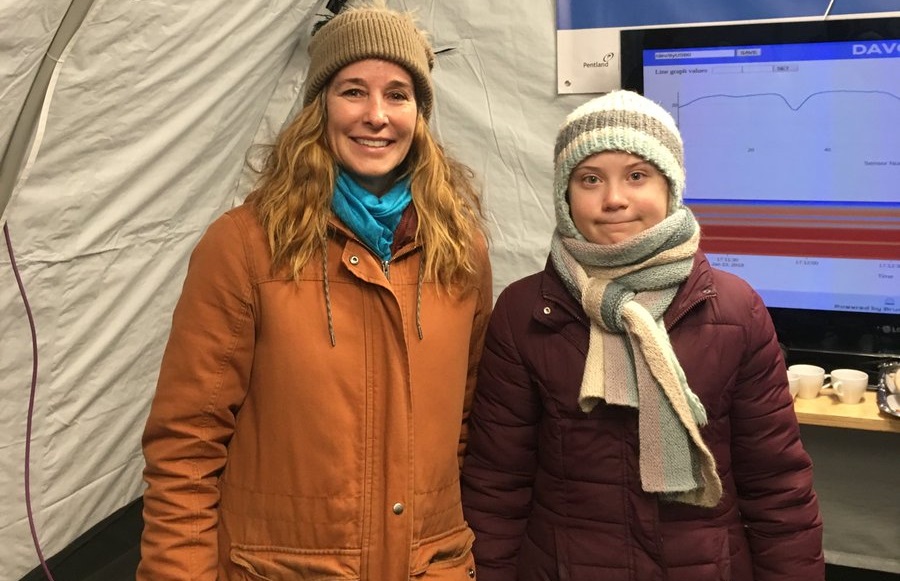
Dr. Julienne Stroeve, Senior Canada-150 Research Chair in Climate Forcing of Sea Ice at the University of Manitoba Centre for Earth Observation Science (CEOS), meets with youth climate activist Greta Thunberg.
Sources of climate science
U of M research chair is contributing to the collection of climate data
Last week, students and environmentalists took part in a high-profile global climate strike started by youth activist Greta Thunberg. The remarkable media attention for the events has caused many to wonder about the science of climate change. How do we know what we know?
Key indicators of climate change include the freeze and melt cycles of sea ice, as well as the shifts in global temperature trends.
Scholars at the Centre for Earth Observation Science (CEOS) are at the forefront of collecting and analyzing climate data. One such researcher is the University of Manitoba’s Senior Canada-150 Research Chair, Dr. Julienne Stroeve.
“May and August in 2019 were the warmest on record for the Arctic,” says Dr. Stroeve, an expert in climate modelling through the remote sensing of sea ice.
The total amount of Arctic sea ice has been tracking at record low levels for this time of year. Average Arctic sea ice for April and July set new record lows for the time of year.
“Because sea ice is an important indicator of climate change, plays a fundamental role in the Arctic energy and freshwater balance, and is a key component of the marine ecosystem, it is essential that we improve the accuracy of thickness measurements from satellites,” according to Dr. Stroeve.
This year, Dr. Stroeve will be taking part in the largest polar expedition ever conceived. For the first time, an icebreaker research vessel will spend a full year in the Arctic to conduct research where the changes are most evident.
The diversity and complexity of the expedition is captured in its name. MOSAiC stands for Multidisciplinary drifting Observatory for the Study of Arctic Climate.
More than 600 scientists from 19 different countries will board the Polarstern, a German-led research vessel, to better understand environmental shifts occurring in the Arctic circle.
The Polarstern will host oceanographers, marine ecologists, atmospheric physicists, biochemists, glaciologists and climate researchers, who will all conduct research that will contribute to the MOSAiC project.
“We also hope improved data will give us a stronger steer on how sea ice thickness is changing from year to year and over the long-term,” says Dr. Stroeve.
Climate change has been observable in the Arctic over a relatively short period of time. Although climate forecast models differ from one another, they all come to the same conclusion that the pace of temperature increases are most obvious in the Arctic.
As the public is showing increasing interest in climate science, ongoing research is crucial to understanding a topic on the minds of many. Environmental research taking place at facilities like CEOS and the Polarstern help us to understand the realities of a changing climate.






